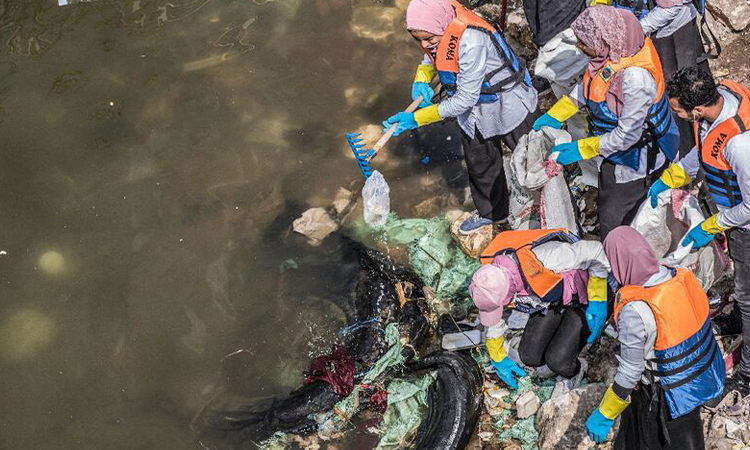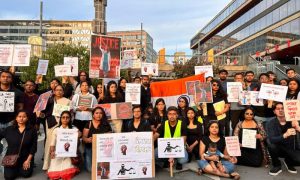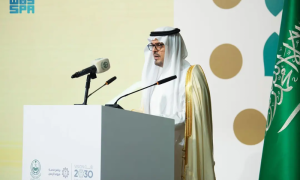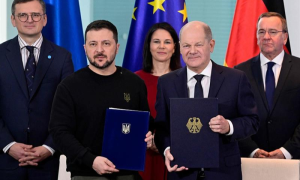CAIRO: Entrepreneurial young Egyptians are helping their country combat the huge plastic waste problem, by recycling water bottles, junk-food wrappers and garbage that usually ends up in the Nile or landfills.
At a plant on the outskirts of the city, run by their startup TileGreen, machines with noise, gobble up huge amounts of plastic scraps, shred and turn them into a dense liquid. The sludge — made from all kinds of plastic and shopping bags — is then molded into compact, dark bricks that are used as outdoor pavers for garages and walkways. “They’re twice as strong as concrete,” Khaled Raafat, 24, boasts co-founder, smashing one onto the floor for emphasis. Each tile pushes about “125 plastic bags out of the environment”, says Amr Shalan, 26, his business partner.
According to a multinational study by Science magazine, Egypt is the Arab world’s most populous country and is also the biggest plastic polluter in the Middle East and Africa. The country generates more than 3m tonnes of plastic waste every year, much of which ends up in streets and illegal landfill sights or finds its way into the Nile River and the Mediterranean Sea.
Microplastics in the water threaten health of people who consume seafood caught in Africa’s mighty waterway. TileGreen, launched two years ago in 2021, aims to “recycle 3bn-5bn plastic bags by 2025, said Shalan. The start-up last year started selling its tiles and has planned to expand into other products usually made from cement.
Country of 104 million, Egypt has pledged to more than halve its yearly consumption of single-use plastics by 2030 and build multiple new waste management plants.
Nile became more polluted
As the Nile became more polluted, the fishermen see their catches decreasing, said Hany Fawzy, 47, the project manager. “They knew this was their future and their children’s future disappearing.”
A 2020 study by a group of UK-based and Danish scientists published in the journal Toxics suggests that over three-quarters of Cairo fish were found to contain microplastics. Off the port city of Alexandria, further to the north, microplastics were detected in around 92 percent of the fish caught, according to a study by researchers at Egypt’s National Institute of Oceanography and Fisheries in 2022.
VeryNile, started 5 years ago with a series of volunteer clean-up events, buys around 10-12 tonnes of plastic a month from 65 fishermen, Fawzy said. VeryNile then compresses plastic like water bottles and sends it to a recycling factory to be made into pellets.
In Egypt, the activists have praised what they see as a youth-led effort for sustainability that has created a demand for environmentally-minded products and solutions. — AFP/APP
























